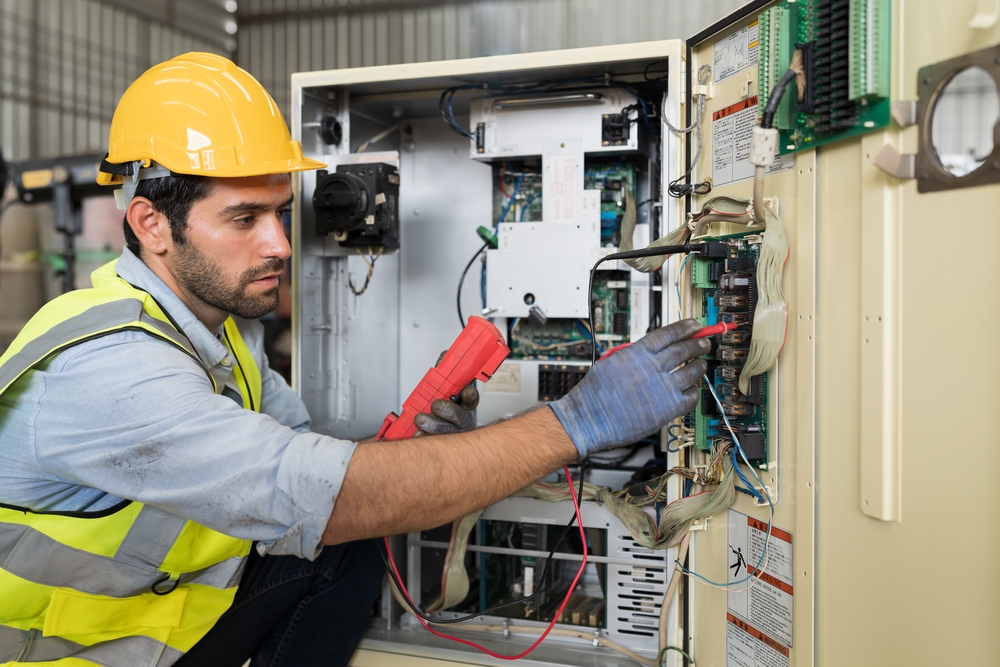Many people interchange the terms “electrician” and “electrical contractor” when tackling electrical issues or projects. While both professionals deal with electricity, their roles, expertise, and responsibilities differ significantly. Understanding these differences is crucial when deciding whom to hire for electrical repairs or larger projects.
In this post, we’ll explore the distinctions between an electrical contractor and an electrician, helping you make informed decisions based on your needs.
The Main Differences
At first glance, both electricians and electrical contractors have the same goal: ensuring electrical systems are installed, maintained, and repaired safely. However, the differences lie in the scope of their work and the types of services they provide.
Electricians are specialized professionals primarily focused on hands-on electrical work. They are skilled in installing, repairing, and maintaining wiring, electrical fixtures, and systems in homes, offices, or other buildings.
On the other hand, electrical contractors manage larger-scale projects. They oversee the entire process, from planning and design to hiring electricians and ensuring that all safety regulations are met. While electricians handle the physical work, professional electrical contractors operate more like project managers, ensuring the job is completed on time and within budget.
Responsibilities and Expertise
To better understand the role of an electrician versus an electrical contractor, it’s important to examine their key responsibilities and areas of expertise.

Electrician’s Focus: Hands-on Electrical Work
Electricians are trained to perform hands-on work with electrical systems. Their daily tasks can include wiring buildings, repairing faulty systems, installing lighting fixtures, and troubleshooting electrical issues. They may work in residential homes, commercial buildings, or industrial settings.
Their job demands a deep knowledge of electrical systems and safety regulations to ensure that wiring and installations are done correctly and efficiently. Electricians are often the go-to choice for electrical repairs in homes or small-scale electrical projects.
For example, if you’re experiencing an issue with your home’s wiring or need new outlets installed, hiring an electrician would be the most suitable choice. Residential electrical contractors and electricians often collaborate on larger projects, but for basic electrical repairs, electricians handle the bulk of the work.
Electrical Contractor’s Broader Scope: Planning, Management, and Supervision
Electrical contractors have a broader scope of responsibilities. They are typically licensed to manage both electricians and electrical projects. Electrical contractors oversee entire electrical system installations or large-scale upgrades. They coordinate teams of electricians, procure necessary permits, and ensure that all aspects of the project meet legal and safety standards.
Electrical contractors are usually brought in for more extensive projects, such as the wiring of a new home, industrial building, or commercial space. While the electricians they hire focus on hands-on work, contractors are responsible for planning, budget management, and supervision.
Hiring professional electric contractors is crucial for large or complex projects, as their expertise ensures all work is performed safely and within the project’s timeline.
Licensing and Qualifications
Both electricians and electrical contractors must meet certain licensing and qualification requirements to perform their work legally and safely. However, the extent of these requirements differs based on their role and scope of work.

Electrician’s Licensing Requirements
Electricians must complete rigorous training, usually through an apprenticeship program, and pass specific exams to become licensed. This process ensures they are well-versed in electrical systems, safety regulations, and local building codes.
The licensing requirements vary by state, but generally, electricians need to complete a specific number of classroom hours and hands-on training to receive their license. Once licensed, electricians are qualified to handle a wide range of electrical repairs and installations for residential, commercial, and industrial projects.
Electrical Contractor’s Additional Qualifications
Electrical contractors typically need additional qualifications in addition to the licensing requirements of electricians. They often need a contractor’s license, requiring years of experience as a licensed electrician before applying.
Contractors must also know about project management, budgeting, and regulations related to large-scale electrical systems. Depending on the location, contractors may need additional certifications to handle certain projects, such as industrial wiring or renewable energy installations.
Choosing the Right Professional: Matching Your Needs
Whether you need simple electrical repairs or are planning a large-scale project, knowing when to hire an electrician or an electrical contractor is essential.
When to Hire an Electrician
If you’re dealing with minor electrical repairs or installations in your home, an electrician is typically the best choice. Electricians are ideal for tasks such as:
- Fixing faulty wiring
- Installing light fixtures or outlets
- Troubleshooting electrical problems
- Replacing circuit breakers
Electricians have the tools and skills to handle these tasks efficiently and safely. Electricians often perform the physical work under the contractor’s supervision for residential electrical contractors.
When to Hire an Electrical Contractor
Hiring an electrical contractor is better if your project is more extensive, such as wiring a new building or upgrading an entire electrical system. Contractors manage and oversee every aspect of the project, ensuring it is completed on time, within budget, and according to safety standards. You should hire an electrical contractor if:
- You’re building a new home or commercial space
- You’re undergoing a major renovation that requires new wiring
- You need to upgrade an outdated electrical system
- You want to ensure project management and legal compliance
Call Our Electrical Experts
R&A Langevin is a leading provider of high-quality residential electrical services in New Hampshire. From basic repairs to full wiring projects or customized electrical solutions for your home, our skilled electrical contractors are ready to assist you. Contact us today.
